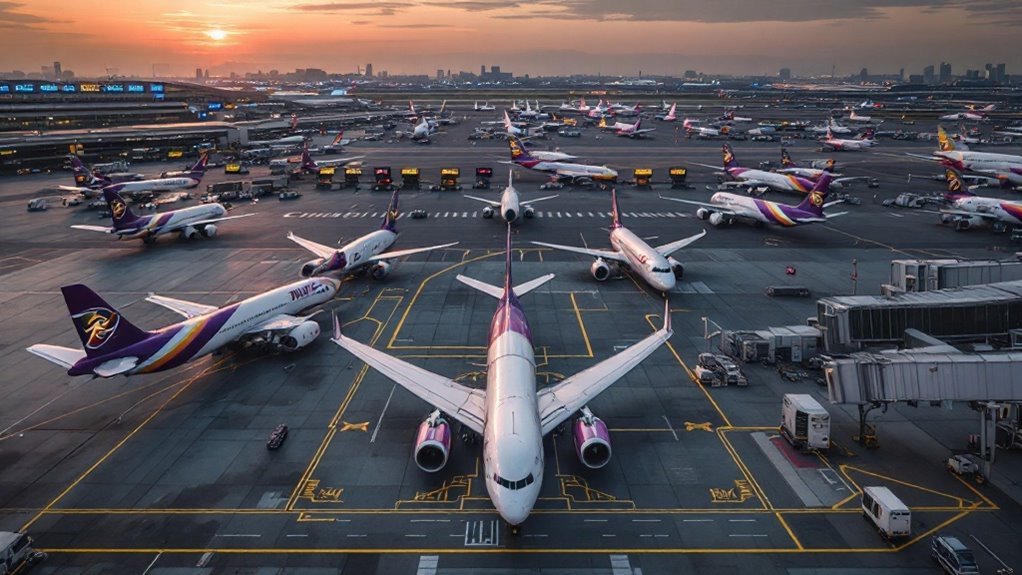Thai authorities have firmly denied rumors of a hidden travel ban affecting Chinese tourists, clarifying that no official prohibition or advisory has been issued by Beijing. Visitor numbers from China remain stable, with organized tours and future group bookings ongoing. Isolated incidents and outdated passport warnings have not materially disrupted travel. Security measures and ongoing investigations are in place to maintain Thailand’s strong reputation as a safe destination. Further details reveal how these developments impact tourism and economic trends.
Thai authorities have firmly dismissed recent speculation regarding a hidden Chinese travel ban to Thailand, clarifying that no official prohibition or warning has been issued by Beijing. The rumors, which originated from unverified sources, suggested a covert restriction on Chinese travelers to Thailand. In response, Thai officials acted swiftly to address public concern. The Thai government released official statements confirming the absence of any such ban, while Chinese authorities also confirmed that no travel prohibition or advisory had been implemented. In fact, Thailand ranked fifth globally in spending by Chinese tourists during Labour Day, demonstrating the enduring popularity of Thailand as a destination for Chinese travelers.
Thai and Chinese authorities confirm no hidden travel ban exists, dismissing rumors of covert restrictions on Chinese visitors to Thailand.
Tourism trends reveal that despite the rumors, Chinese visitor numbers remain robust. Significantly, senior citizen group tours from China have recently arrived in Thailand, indicating continued demand. Lower airfares following the peak holiday season have further encouraged travel, with school and university groups making future bookings for July and August. These indicators support the positive outlook for Thai tourism, highlighting its resilience despite external speculation. U.S. immigration policy shows how executive actions can impact international travel, but Thai tourism remains driven by market demand and government clarity.
The Ministry of Tourism emphasized that isolated malicious activities, which have occasionally deterred tourists, are not widespread and have not materially impacted the broader tourism sector. Thai officials are currently addressing an issue related to an automated warning in the Chinese passport system, which some interpreted as a travel alert. Authorities clarified that this warning is a legacy issue, not a product of recent policy changes, and is in the process of being removed.
Meanwhile, the Tourism Authority of Thailand has reported ongoing inquiries from Chinese travelers planning future visits, suggesting sustained interest and confidence in Thailand as a destination. On the security front, Thai authorities have intensified investigations into activities aimed at deterring tourists, taking decisive action to identify and apprehend those responsible.
In the broader context of international travel, Thailand is also updating its requirements. Starting June 2025, the country will require visa-exempt travelers to obtain an Electronic Travel Authorization (ETA), a measure designed to enhance the tracking of foreign visitors and improve security.
Economically, the recovery of Chinese tourism remains crucial for Thailand, as visitor spending supports jobs and stimulates growth. Positive trends in arrivals signal a potential boost in tourism revenue, reinforcing the sector’s role in the nation’s economic outlook.









